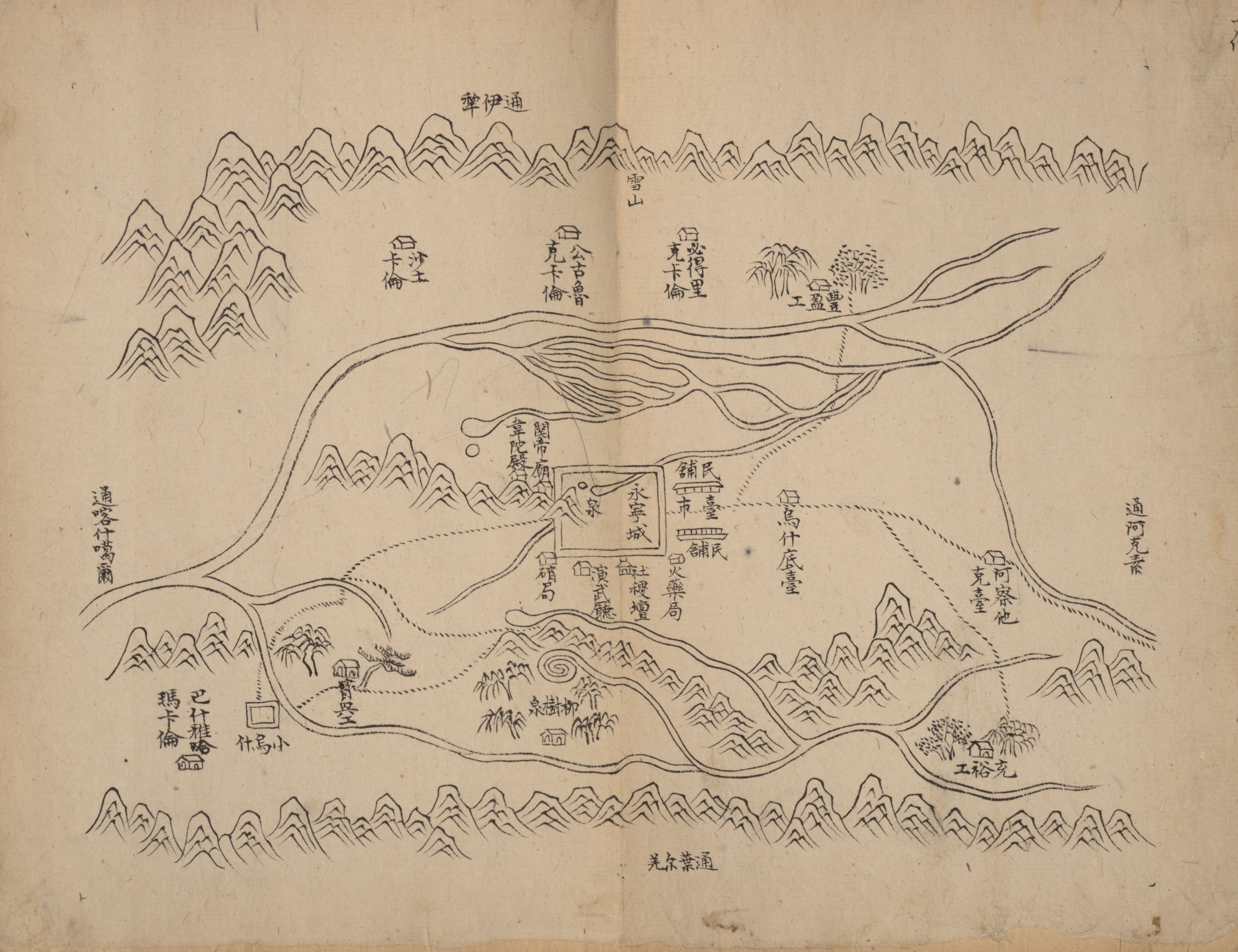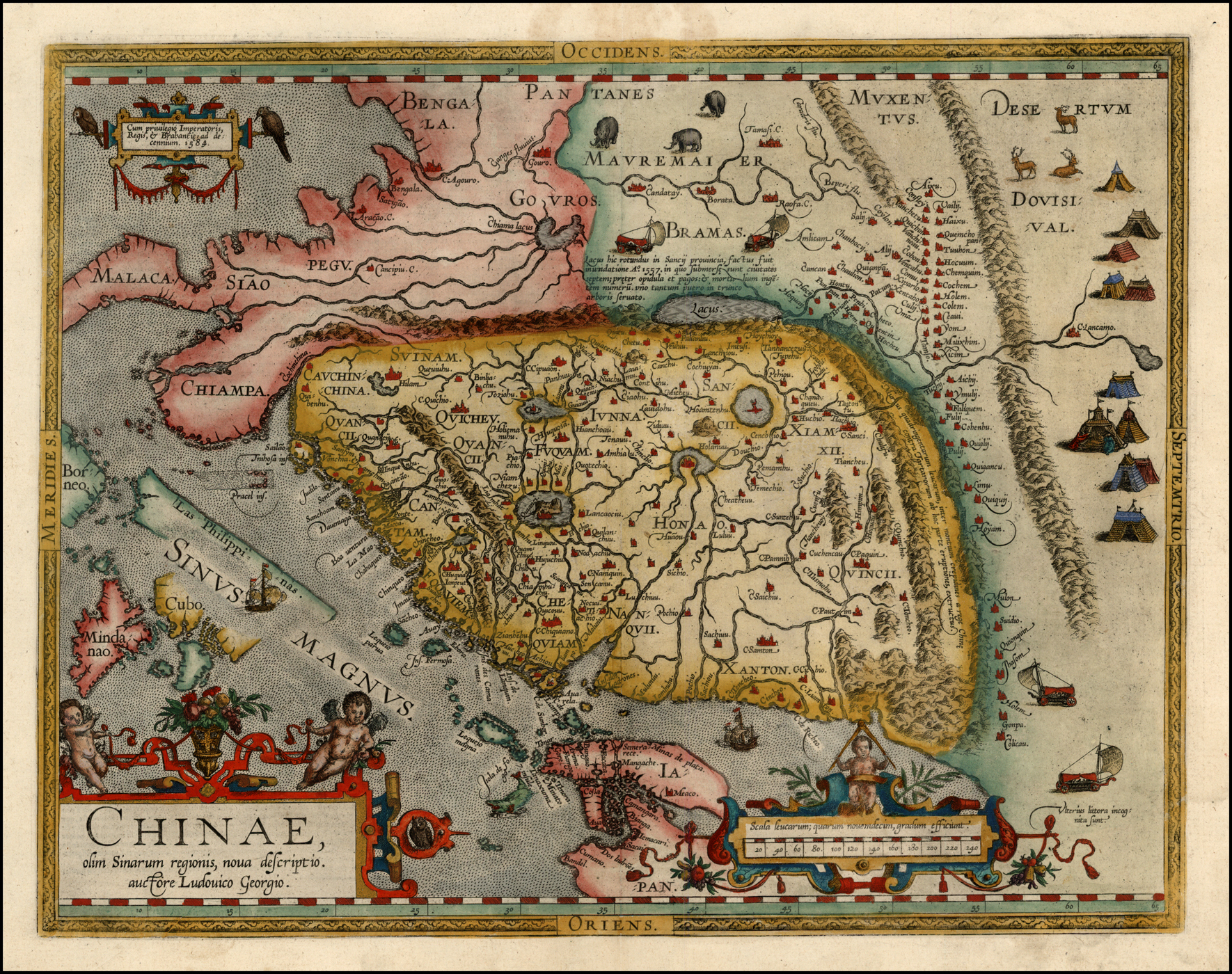|
Abdulkerim Abbas
Abdulkerim Abbas, also Abdul Kerim Abbas, Abdulkerim Abbasoff, 'Abd al-Karīm 'Abbās (1921 – 27 August 1949), was a Uyghur leader in Xinjiang, China during the 20th century. He helped lead the Ili Rebellion of 1944, which led to the founding of the Second East Turkestan Republic (Three Districts) in northern Xinjiang. Abbas, along with Ehmetjan Qasim, headed the Marxist faction within the Three Districts, which in 1946 set aside the rebellion's declaration of independence and joined the Nationalist Chinese in forming a coalition provincial government. Qasim and Abbas led the Three Districts in joining the Chinese Communists toward the end of the Chinese Civil War. They and several other senior leaders of the Three Districts perished in August 1949 in a plane crash while traveling en route to Beiping (Beijing) where they were invited to participate in the Chinese Communists' political consultative conference, which resulted in the founding of the People's Republic of C ... [...More Info...] [...Related Items...] OR: [Wikipedia] [Google] [Baidu] |
Karakol
Karakol ( ky, Каракол, Karakol, قاراقول, ; zh, 卡拉科尔), formerly Przhevalsk (russian: Пржевальск), is the fourth-largest city in Kyrgyzstan, near the eastern tip of Lake Issyk-Kul, about from the Kyrgyzstan–China border and from the capital Bishkek. It is the administrative capital of Issyk-Kul Region. Its area is , and its resident population was 84,351 in 2021 (both including Pristan'-Przheval'sk). To the north, on highway A363, is Tüp, and to the southwest Jeti-Ögüz resort. History A Russian military outpost founded on 1 July 1869, Karakol grew in the 19th century after explorers came to map the peaks and valleys separating Kyrgyzstan from China. In the 1880s Karakol's population surged with an influx of Dungans, Chinese Muslims fleeing warfare in China. In 1888, the Russian explorer Nicholay Przhevalsky died in Karakol of typhoid, while preparing for an expedition to Tibet; the city was renamed Przhevalsk in his honor. After loca ... [...More Info...] [...Related Items...] OR: [Wikipedia] [Google] [Baidu] |
Saifuddin Azizi
Saifuddin Azizi ( ug, سەيپىدىن ئەزىزى; 12 March 1915 – 24 November 2003), also known as Seypidin Azizi, Saif al-Dīn ʿAzīz, Saifuding Aizezi and Saifuding, was the first chairman of the Xinjiang Uyghur Autonomous Region of the People's Republic of China. Biography Azizi was born in Tacheng to an influential Uyghur trader family originally from Artux (Artush). He attended school in Xinjiang and then moved to the Soviet Union, joining the Communist Party of the Soviet Union (CPSU) and studying at the Central Asia Political Institute in Tashkent. He returned to Xinjiang as a Soviet agent, instigating the Soviet-backed Ili Rebellion against the Republic of China government in northwest Xinjiang. He served as Minister of Education in the Second East Turkestan Republic and Commissioner of Education in the Zhang Zhizhong Ili Rebel-Kuomintang coalition government from 1945–1948. In September 1949, Saifuddin attended the Chinese People's Political Consultative Conf ... [...More Info...] [...Related Items...] OR: [Wikipedia] [Google] [Baidu] |
Chinese Communist Party
The Chinese Communist Party (CCP), officially the Communist Party of China (CPC), is the founding and sole ruling party of the People's Republic of China (PRC). Under the leadership of Mao Zedong, the CCP emerged victorious in the Chinese Civil War against the Kuomintang, and, in 1949, Mao proclaimed the establishment of the People's Republic of China. Since then, the CCP has governed China with eight smaller parties within its United Front and has sole control over the People's Liberation Army (PLA). Each successive leader of the CCP has added their own theories to the party's constitution, which outlines the ideological beliefs of the party, collectively referred to as socialism with Chinese characteristics. As of 2022, the CCP has more than 96 million members, making it the second largest political party by party membership in the world after India's Bharatiya Janata Party. The Chinese public generally refers to the CCP as simply "the Party". In 1921, Chen Duxiu and ... [...More Info...] [...Related Items...] OR: [Wikipedia] [Google] [Baidu] |
Chinese Language
Chinese (, especially when referring to written Chinese) is a group of languages spoken natively by the ethnic Han Chinese majority and many minority ethnic groups in Greater China. About 1.3 billion people (or approximately 16% of the world's population) speak a variety of Chinese as their first language. Chinese languages form the Sinitic branch of the Sino-Tibetan languages family. The spoken varieties of Chinese are usually considered by native speakers to be variants of a single language. However, their lack of mutual intelligibility means they are sometimes considered separate languages in a family. Investigation of the historical relationships among the varieties of Chinese is ongoing. Currently, most classifications posit 7 to 13 main regional groups based on phonetic developments from Middle Chinese, of which the most spoken by far is Mandarin (with about 800 million speakers, or 66%), followed by Min (75 million, e.g. Southern Min), Wu (74 million, e ... [...More Info...] [...Related Items...] OR: [Wikipedia] [Google] [Baidu] |
Uqturpan County
Uqturpan County, United States National Geospatial-Intelligence Agency or Uchturpan County ( transliterated from ; ), also Wushi County (), is a county in the Xinjiang Uyghur Autonomous Region under the administration of Aksu Prefecture and shares an approximately long border with Kyrgyzstan's Issyk-Kul Region. The county is bordered to the northeast by Onsu County (Wensu), to the southeast by Aksu city, to the west by Akqi County in Kizilsu Kyrgyz Autonomous Prefecture and to the south by Kalpin County (Keping). It has an area of and a population of 180,000. Name Uqturpan is also spelled Uchturpan and Uch-Turfan. History Tang During the Battle of Aksu (717), the Umayyad Caliphate and their Turgesh and Tibetan Empire allies hope to seize Uqturpan (then known as Dai-dʑiᴇk-dʑiᴇŋ) from Tang-Karluks- Exiled Western Turkic Khaganate allies but were repelled. Qing Ush Turfan was the site of a battle between Barhanuddin and Abdulla during the Revolt of the Altishah ... [...More Info...] [...Related Items...] OR: [Wikipedia] [Google] [Baidu] |
Artux
Artux, Artush ( ug, ئاتۇش شەھىرى; ky, ارتىش, Артыш, Artysh), and officially rendered as Atuş ( zh, s=阿图什市, p=Ātúshí Shì),The official spelling according to is a county-level city and the capital of the Kyrgyz autonomous prefecture of Kizilsu in Xinjiang, China. The government seat is in Guangminglu Subdistrict (). History In January 1943, Artux County was established. In June 1986, Artux County became Artux City. In 2018, the dome of Eshtachi Mosque () was removed. In recent times other mosques have been taken down too. The Artux City Vocational Skills Education Training Service Center in Artux is one of the Xinjiang re-education camps. At 10:23 pm on January 19, 2020, a 5.2 magnitude earthquake struck in Artux. Geography and climate It is situated in the northwest part of the Tarim Basin, south of the Tien Shan mountains. Like most of Xinjiang, Artux has a cool arid climate (Köppen ''BWk'') with hot summers, freezing winters and little ... [...More Info...] [...Related Items...] OR: [Wikipedia] [Google] [Baidu] |
Soviet Union
The Soviet Union,. officially the Union of Soviet Socialist Republics. (USSR),. was a List of former transcontinental countries#Since 1700, transcontinental country that spanned much of Eurasia from 1922 to 1991. A flagship communist state, it was nominally a Federation, federal union of Republics of the Soviet Union, fifteen national republics; in practice, both Government of the Soviet Union, its government and Economy of the Soviet Union, its economy were highly Soviet-type economic planning, centralized until its final years. It was a one-party state governed by the Communist Party of the Soviet Union, with the city of Moscow serving as its capital as well as that of its largest and most populous republic: the Russian Soviet Federative Socialist Republic, Russian SFSR. Other major cities included Saint Petersburg, Leningrad (Russian SFSR), Kyiv, Kiev (Ukrainian Soviet Socialist Republic, Ukrainian SSR), Minsk (Byelorussian Soviet Socialist Republic, Byelorussian SSR), Tas ... [...More Info...] [...Related Items...] OR: [Wikipedia] [Google] [Baidu] |
People's Republic Of China
China, officially the People's Republic of China (PRC), is a country in East Asia. It is the world's most populous country, with a population exceeding 1.4 billion, slightly ahead of India. China spans the equivalent of five time zones and borders fourteen countries by land, the most of any country in the world, tied with Russia. Covering an area of approximately , it is the world's third largest country by total land area. The country consists of 22 provinces, five autonomous regions, four municipalities, and two Special Administrative Regions (Hong Kong and Macau). The national capital is Beijing, and the most populous city and financial center is Shanghai. Modern Chinese trace their origins to a cradle of civilization in the fertile basin of the Yellow River in the North China Plain. The semi-legendary Xia dynasty in the 21st century BCE and the well-attested Shang and Zhou dynasties developed a bureaucratic political system to serve hereditary monarchies, o ... [...More Info...] [...Related Items...] OR: [Wikipedia] [Google] [Baidu] |
Beijing
} Beijing ( ; ; ), alternatively romanized as Peking ( ), is the capital of the People's Republic of China. It is the center of power and development of the country. Beijing is the world's most populous national capital city, with over 21 million residents. It has an administrative area of , the third in the country after Guangzhou and Shanghai. It is located in Northern China, and is governed as a municipality under the direct administration of the State Council with 16 urban, suburban, and rural districts.Figures based on 2006 statistics published in 2007 National Statistical Yearbook of China and available online at archive. Retrieved 21 April 2009. Beijing is mostly surrounded by Hebei Province with the exception of neighboring Tianjin to the southeast; together, the three divisions form the Jingjinji megalopolis and the national capital region of China. Beijing is a global city and one of the world's leading centres for culture, diplomacy, politics, finance, busine ... [...More Info...] [...Related Items...] OR: [Wikipedia] [Google] [Baidu] |
Beiping
"Beijing" is from pinyin ''Běijīng,'' which is romanized from , the Chinese name for this city. The pinyin system of transliteration was approved by the Chinese government in 1958, but little used until 1979. It was gradually adopted by various news organizations, governments, and international agencies over the next decade. Etymology The Chinese characters ("north") and ("capital") together mean the "Northern Capital". The name was first used during the reign of the Ming dynasty's Yongle Emperor, who made his northern fief a second capital, along with Nanjing (, the "Southern Capital"), in 1403 after successfully dethroning his nephew during the Jingnan Campaign. The name was restored in 1949 at the founding of the People's Republic of China. Peking Portugal was the first European country to contact China in modern times. In Portuguese, the city is called ''Pequim.'' This name appeared in the letters of Francis Xavier in 1552. It transferred to English as "Pekin" and to ... [...More Info...] [...Related Items...] OR: [Wikipedia] [Google] [Baidu] |


.jpg)





